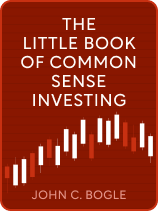

This article is an excerpt from the Shortform book guide to "The Little Book of Common Sense Investing" by John C. Bogle. Shortform has the world's best summaries and analyses of books you should be reading.
Like this article? Sign up for a free trial here.
Should you invest in bonds? How do bonds compare to stocks in terms of return on investment?
Historically, bonds have generated significantly lower returns than equity investments, or stocks: Annual returns on bonds have been 5.3% since 1900, while annual returns on stocks have been 9.5%. Despite that, the founder of the Vanguard Group Jack Bogle argues that bonds do belong in your portfolio.
Here’s why you should invest in bonds, according to Bogle.
John Bogle: Why You Should Invest In Bonds
Should you invest in bonds? According to Jack Bogle, the author of The Little Book of Common Sense Investing, there are three reasons to invest in bonds:
1) Bonds can beat stocks over short stretches;
2) Bonds provide protection during market drops;
3) Bond yields are still greater than current dividend yields.
(Shortform note: Bonds have existed far longer than stocks have—in fact, the first recorded bond dates to 2400 B.C. in Mesopotamia, guaranteeing the payment of grain by a set time. Moreover, in the late 17th century, the Bank of England created the world’s first government bond to fund war against France, a trend that continued into US history with Liberty Bonds helping to finance the American effort in World War I.)
First, Bogle observes that from 1900 to 2017, bonds outperformed stocks in 42 of those years. So, in years when the stock market’s returns are below average, bonds can offer a better return on investment.
(Shortform note: According to some experts, bonds could be a better investment than stocks in 2023. In particular, they argue that we haven’t fully exited the equity bear market, and companies’ profit increases are unsustainable. Consequently, bonds might be the safer—and more lucrative—investment in 2023.)
Second, because bond returns are largely fixed by bond interest rates, Bogle notes that they’re much less volatile than stocks. For example, while nobody can guarantee Apple’s stock returns from year to year, a one-year Treasury bond at 4% interest effectively guarantees a 4% return on your investment. Consequently, bonds can stabilize your investment portfolio amidst the stock market’s ebbs and flows.
(Shortform note: Although bonds are less volatile than stocks, there’s a risk that your bond issuer will default and fail to make your scheduled repayments. In the case of government bonds, this can occur when governments lack the tax revenue to repay bond owners, while corporations can default on bonds when they suffer from unexpected revenue dips.)
Finally, Bogle points out that in 2017, bond yields (the annual return on bonds relative to their price) remained higher than stocks’ dividend yields: The average bond yield was 3.1%, while the average dividend yield was 2.0%. So, bonds can generate a greater flow of liquid income than stocks.
(Shortform note: Bond yields and dividend yields also have different tax implications. For example, although municipal bonds issued by local and state governments are exempt from federal income tax, dividends are typically subject to corporate gains taxes of 15%.)
Bond Mutual Funds vs. Bond Index Funds
Just like you can purchase equity via actively managed mutual funds and index funds, you can also purchase bonds via bond mutual funds and bond index funds. In the case of bond mutual funds, managers actively purchase and sell bonds using fund assets, whereas bond index funds purchase bonds that reflect certain bond indices. Because bond index funds are more cost-efficient, Bogle argues that they deliver better returns than bond mutual funds.
To defend this claim, Bogle examines the two primary types of bond funds—government and corporate bonds—in addition to three maturity segments—short-term, intermediate-term, and long-term. Further, he uses SPIVA to compare bond mutual funds in these six cross-sections to similar bond index funds.
From 2001 to 2016, SPIVA demonstrates that 85% of bond indices outperformed similar bond mutual funds. In particular, long-term bond indices outperformed 97% of long-term bond mutual funds, both in government and corporate segments.
According to Bogle, bond index funds are a better investment than bond mutual funds for the same reason that equity index funds outperform equity mutual funds: They have lower expense ratios. The average bond index fund’s expense ratio was 0.1% annually, while the average bond mutual fund’s expense ratio was 0.75% annually.

———End of Preview———
Like what you just read? Read the rest of the world's best book summary and analysis of John C. Bogle's "The Little Book of Common Sense Investing" at Shortform.
Here's what you'll find in our full The Little Book of Common Sense Investing summary:
- A simple winning strategy for novice investors
- Why index funds are superior to mutual funds
- Why bonds belong in your investment portfolio






